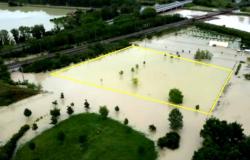44 victims just since the beginning of the year: it is a “dramatic count” of prisoners who have taken their own lives in Italy, recalled in a note by Elisabetta Burla, municipal guarantor of the rights of prisoners in Trieste.
This is a serious phenomenon, which concerns all inmates of Italian prisons, men and women, young and old, Italians and foreigners, “a dramatic count – says the Guarantor – which should shake consciences because behind every number there is a person and behind this person a family, friends even “just” fellow prisoners and the prison police officers themselves who, in addition to having to deal with the inhuman conditions of detention and the inhuman working conditions, find themselves having to overcome the trauma that the event of death inexorably brings with it”.
Burla points the finger at the overcrowding also present in the prison of Trieste, which has long housed between 250 and 260 inmates out of a regulatory capacity of 139 people, brought, inexplicably, he says, to 150, with eight-square-metre cells, where more people, with sanitary facilities in unacceptable conditions. At the same time, the number of prison police officers on duty is reduced, almost proportionally to the increase in the number of people detained.
A situation that no one seems to be able to get a handle on. The appeals of the operators and the Guarantors remain unheard by politics, says Burla: “a massacre is taking place and we are looking in another direction”, despite the calls from Europe, which has highlighted how “the measures adopted so far by the authorities have not succeeded in stopping the phenomenon” and how Italy must “rapidly adopt further measures and guarantee adequate additional financial resources to strengthen the capacity to prevent these deaths”.
The Guarantor also underlines how some proposed interventions, which could help address the situation, would not entail expenses for the State: the increase in telephone calls to be paid to the prisoner and video calls, the possibility of being able to cultivate affections, the approval of a legislation for the controlled reduction of the prison population through special early release.
It would also be necessary, he adds, “reforms with a different vision of the real needs of the population”: stemming marginalization and social isolation, guaranteeing effective care for people with hardship, providing real integration and resocialization paths, implementing already existing rules and guarantee an execution of the sentence that can truly offer valid tools to the person for a concrete critical review of the past”.
Alessandro Martegani






